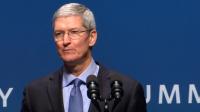
Apple has been charged with luring away employees of other companies against strict contractual terms and conditions. The charges come on the heels of unconfirmed reports that Apple may be developing an electric car.
The news has a good as well as a bad angle to it. The good part is we now know for sure that Apple is actually working on a new electric car, but the bad news is the desperation involved - the fact that Apple is ready to stoop to any level to get its job done.
A123 Systems, a lithium-ion battery maker for electric cars and other business sectors, is dragging Apple to the court for what it asserts is an "aggressive campaign to poach employees", which is also in violation of these employees' non-disclosure and non-compete agreements.
The complaint, filed in Massachusetts earlier this week, identifies five employees who have either defected to Apple or appear to be in the mix by recruiting others to join Apple. A123 claims that Apple aims to build a competing battery business, partly relying on the proficiency of former A123 employees to help it thrive.
The battery maker says Apple's efforts bully A123's own business and is leaving it scuttling for practised replacements that leave the company at risk following its reorganization. That being said, Apple also reporedly hired auto industry professionals from Daimler AG's Mercedes-Benz unit and from Tesla Motors Inc.
Apple, as of now, has declined to comment on the suit. A123 officials also couldn't be reached for a comment. However, it is an important piece of news as it somwhat confirms that Apple may very well be developing an electric car.
Recently, various media reports revealed Apple was planning on entering the auto industry as early as 2020. As reports had suggested, the Cupertino-based iPhone maker is currently pushing its "car team" of about 200 people to meet the new goal.
A123, on the other hand, filed for bankruptcy protection in 2012 amid slower-than-expected battery advances, high costs of development and sluggish consumer reception of electric cars. However, the company was bought out by Chinese company Wanxiang for $251m (£163m).
Stay tuned for more updates!
[Source: WSJ]














